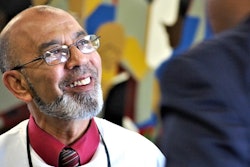While African-Americans are disproportionately affected by HIV/AIDS, the number of Black HIV/AIDS researchers is in short supply. However, a research team at the University of California, Los Angeles is working to remedy this problem.
To increase the number of Black HIV/AIDS researchers, a research team from the UCLA Center for Culture, Trauma and Mental Health Disparities and the UCLA AIDS Institute recently released a series of recommendations aimed at reversing the trend and recruiting more Blacks into the field. The recommendations, directed at universities, government and private research funders, were published in a supplement to the April issue of the American Journal of Public Health.
“We need African-American experts who are at the forefront of HIV/AIDS prevention,” said Dr. Gail Wyatt, lead author and director of the UCLA AIDS Institute, in a written statement. “HIV/AIDS research conducted by highly trained African-Americans should be the norm and not the exception.”
Funding research that encourages partnerships with historically Black and minority-serving institutions and organizations, such as the National Medical Association, will allow more clinically trained professionals of color to participate in HIV/AIDS research, Wyatt and her team say.
Loan repayment programs for graduate education programs for those who pursue careers in HIV research and mandatory training in cultural competence for federal grant reviewers could also increase the number of Black researchers pursuing HIV/AIDS as a field of study.
In 1999, underrepresented minorities composed almost 25 percent of the U.S. population, but as a research constituency they submitted only 5.2 percent of grant applications to The National Institute of Mental Health. And, of all of the applications that received funding, grants to Blacks accounted for only 3.9 percent, the report outlines.
Despite programs designed to create more training and federal funding opportunities, barriers still exist, researchers say. Understanding these barriers may increase the number of minority researchers that pursue HIV/AIDS research.
Factors constricting the number of Black HIV/AIDS researchers include limiting factors in early career decisions and a lack of exposure to research. Black college students often don’t receive research training early in their careers and may not be versed in constructing a strong research team, the report reveals.
Other issues detouring Black students from HIV/AIDS research are the scarcity of Black mentors in HIV/AIDS research, the negative perceptions some Blacks have about their own competence as HIV/AIDS investigators and a limited opportunity for culturally congruent research, the report says.
“Mentoring is a critical component of preparation for a career in HIV/AIDS research,” the report reveals, noting that Blacks represent only 5.3 percent of full-time faculty in American higher education.
Researchers of color add an important voice and level of expertise to HIV prevention that can only be enhanced by implementing programs to increase the representation of Black investigators in National Institutes of Heath-funded research, the report’s authors say. “A concerted effort to remove barriers to funding and career trajectories ensure that HIV/AIDS research addressing the most affected populations is needed.”
© Copyright 2005 by DiverseEducation.com





















